
UTAR Centre for Corporate and Community Development (CCCD) in collaboration with Centre for Research on Communicable Diseases (CRCD) organised a webinar titled “A ‘New’ World after COVID-19: The Perspective of an Academician” on 8 February 2021 via Zoom and Facebook Live. The webinar was moderated by Faculty of Science (FSc) Department of Allied Health Sciences lecturer Dr Saw Seow Hoon.
Invited to be the speaker for the webinar was Prof Dr Robert C. Rickards from German Police University, Germany. He is currently active in contributing his expertise to various associations, such as the Board of Directors of the Asia-Pacific Management Accounting Association and the Russian Controller Association.
The webinar aimed to highlight Prof Robert’s perspective of the new norm after the Covid-19 pandemic outbreak. Through this webinar, the participants were able to understand how other countries tackle the Covid-19 situation. The participants also got a chance to understand the different perspectives of the countries’ governments through certain policies implemented to tackle the pandemic.
While introducing the talk, Prof Robert said, “I am both a United States national and a German civil servant. Accordingly, I am in a good position to observe the situation concerning Covid-19 and governmental responses to it both in Germany and the United States. Thus, my talk provides a brief comparison of the two countries’ respective leaders in 2020, Trump and Merkel, in handling the Covid-19 pandemic outbreak. The differences in Trump’s and Merkel’s background, life experiences, education, and temperament explain a sizable amount of the variation in their handling of the pandemic and subsequent success. Dissimilarities exist in restrictions pertaining to public and private gatherings; the opening of nurseries, kindergartens, and schools; conditions in retirement and nursing homes; personal mobility and transportation; hospitality and entertainment industries as well as so-called ‘essential’ workers; the role of state governments in the formulation and execution of pandemic countermeasures; initiation of vaccination programmes; interim goals and so forth. These differences in approach have produced vastly different results in the two countries.”
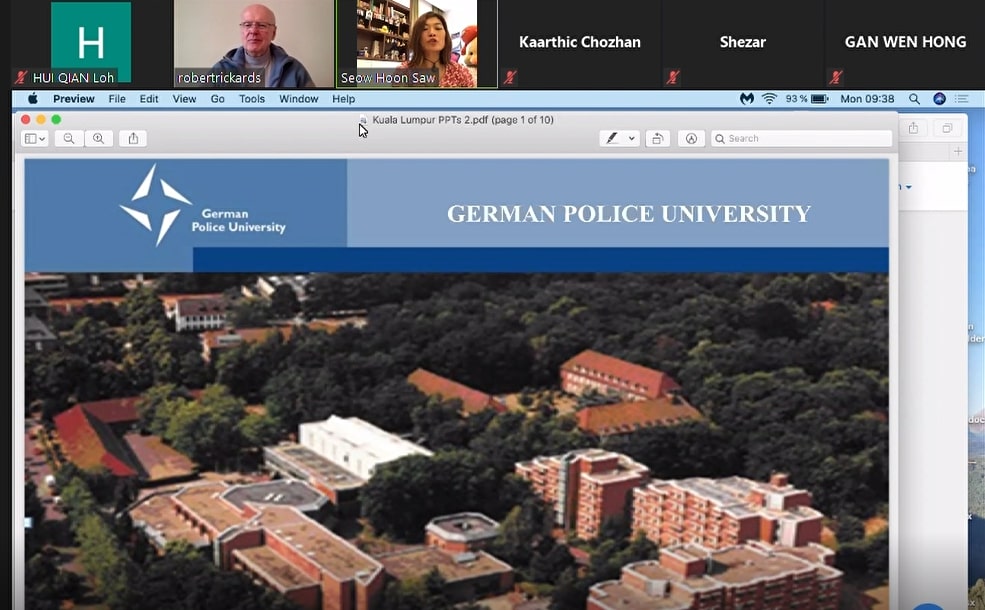
Prof Robert (top, second from left) from German Police University was invited to deliver the talk
Prof Robert began the talk by explaining the pandemic situation in Germany as well as how the government handled the situation. “When the first wave of Covid-19 hit Germany, we were still able to control the situation quite well through the Spring to the Summer and the number was very low. Unfortunately, although there were warnings from different scientists, people still took a very relaxed attitude. They went on vacation and about 10% of the population moved back to their hometowns or travelled around. In the end, these people brought back the virus from their vacations and the number increased while the country was not well prepared. During this period, many people had permissions to go back to their respective working places, universities or restaurants so the virus spread very quickly. We had our second lockdown in October 2020 but it came with fewer restrictions and the outcome was not effective. The number of Covid-19 cases increased rapidly in November and December 2020. Since it was Christmas, the Germany government decided to implement a hard lockdown and the cases had decreased a lot since then,” said Prof Robert.
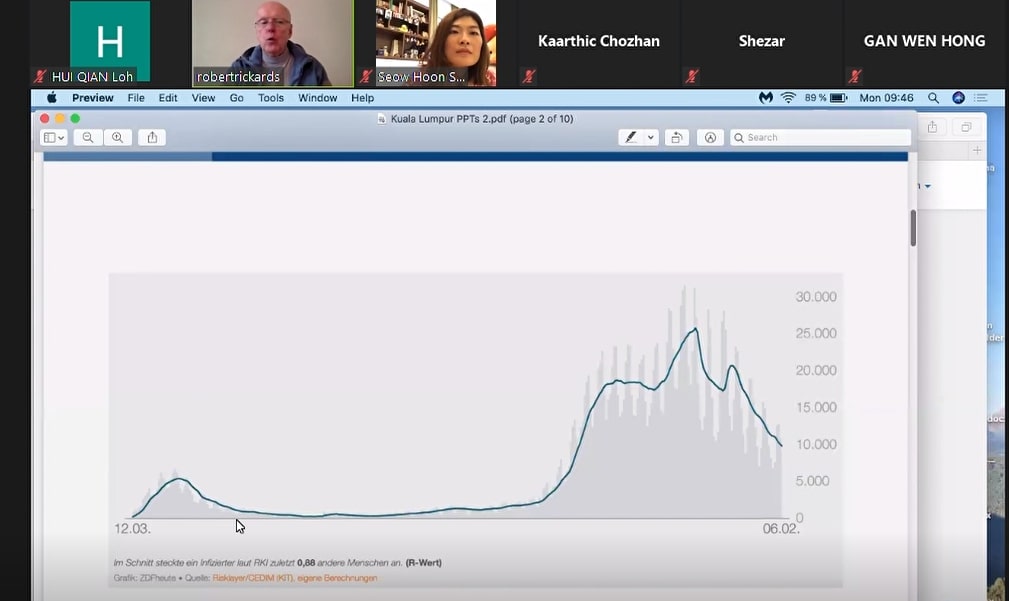
Prof Robert (top, second from left) showing the average cases of Covid-19 in Germany since the first outbreak
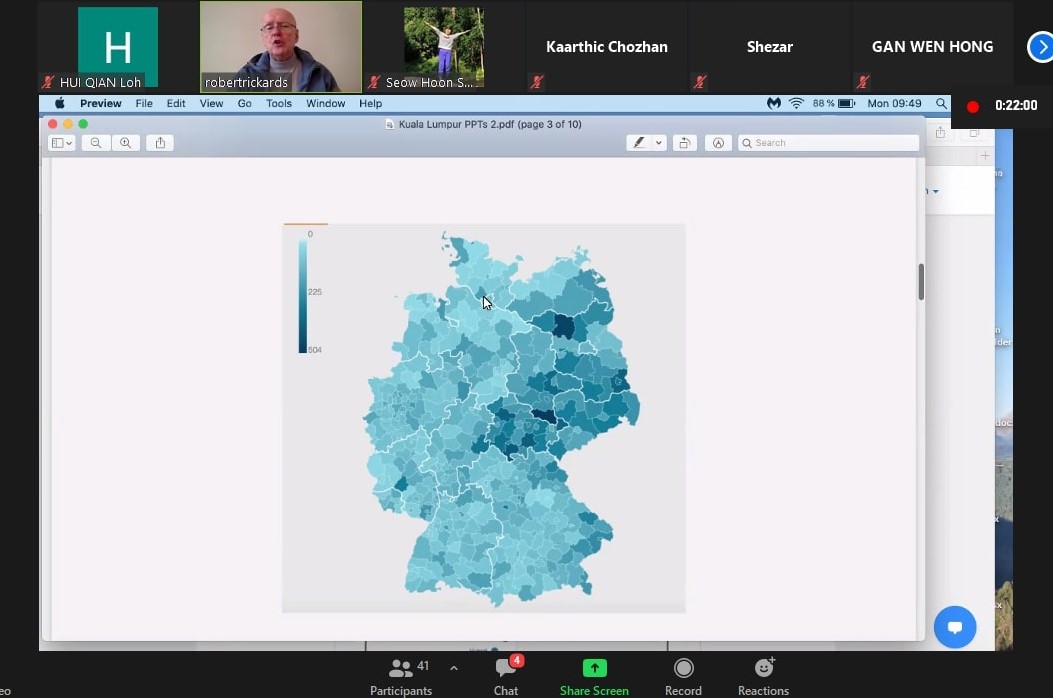
Prof Robert (top, second from left) showing a picture which indicates the effected places in Germany
Speaking of the effectiveness of vaccination, he added, “Most places in Germany was successful in vaccinating the population. The best places were Nordrhein-Westfalen, Berlin, Niedersachsen, Sachsen- Anhalt and Mecklenburg-Vorpommern. However, there were also some places like Rheinland-Pfalz, Schleswig-Holstein, Baden-Württemberg, Brandenburg and Thüringen which did poor job in vaccinating the population.”
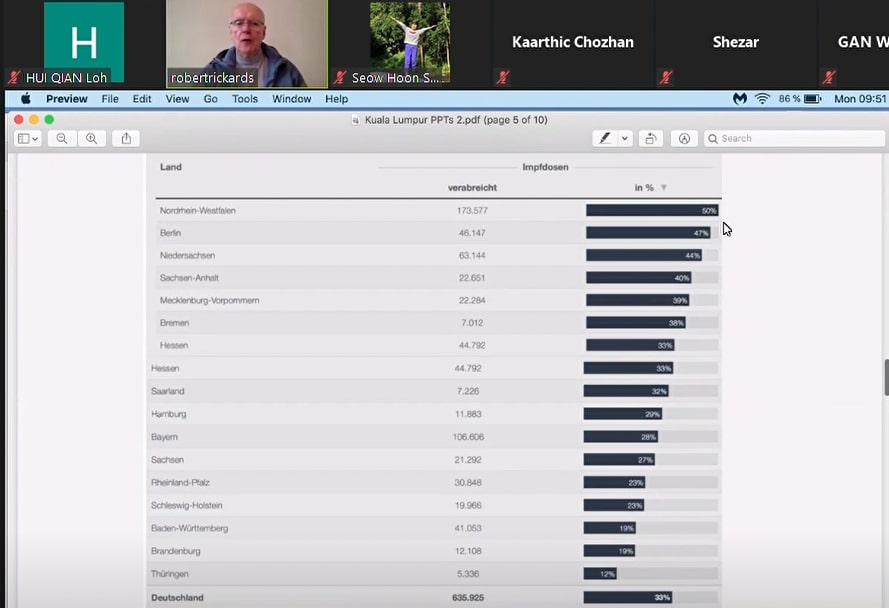
Prof Robert (top, second from left) showing a graph which shows the vaccinated population in Germany
According to Prof Robert, after the vaccination was implemented in most regions throughout Germany, the situation in the country turned out to be better. Unfortunately, some places in East Germany were still affected seriously by the spread of Covid-19. Prof Robert also displayed a picture that showed the comparison of the situation in Germany before and after the vaccination was implemented.
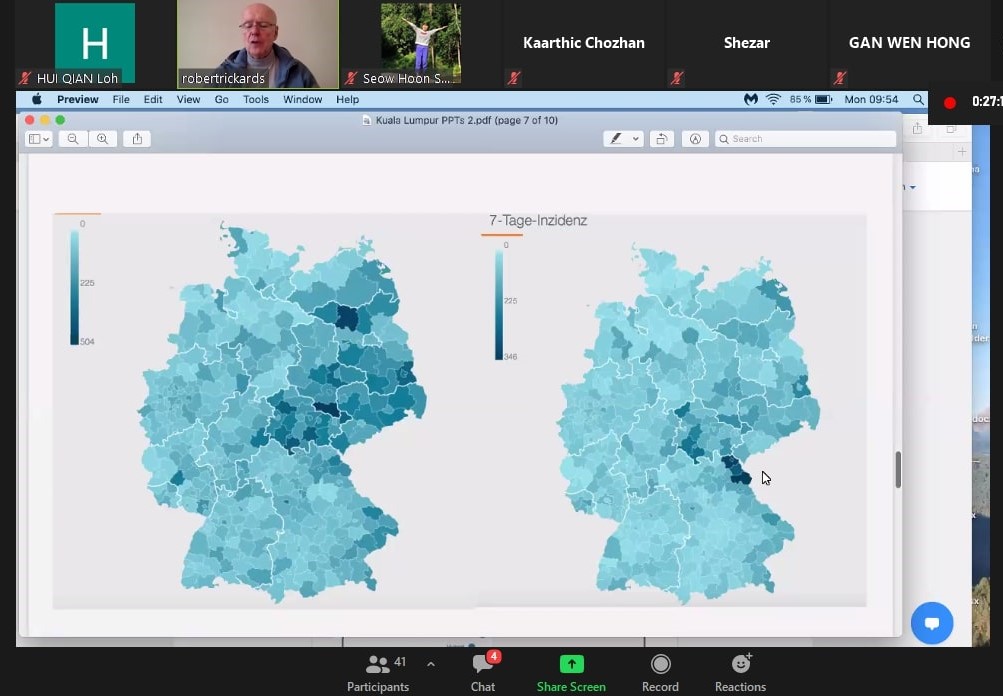
The map on the right shows the affected places in Germany after the vaccination was implemented while the map on the left shows the affected places before the vaccination
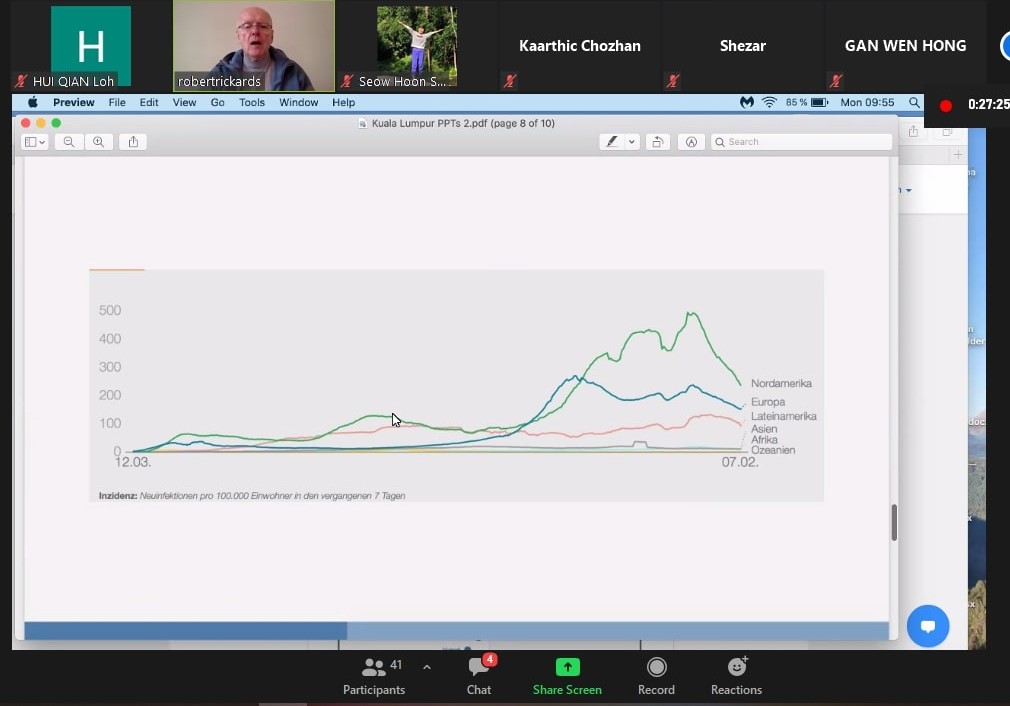
The graph showing the comparison between regions in managing the Covid-19 pandemic
Among other topics covered were “The policies making process and the personalities involved: The Germany versus the United States in emphasising on the contrast between Merkel and Trump”; “The restriction that currently in place: The second lockdown in Germany” and “Prof Roberts experience with his son and neighbours through the second lockdown”.
The talk ended with a Q&A session between Prof Robert and the participants.
Prof Robert’s professional experience include comparative public policy analysis, research methods and statistics. Before pursuing his career in academia, Prof Robert had many experiences in the industry including military service. He was in the rank of lieutenant colonel in the United States Army Reserves, a financial analyst and controller at the Ford Motor Company, the Director of Economic Development for the Sault Ste. Marie Tribe of Chippewa Indians in Michigan, etc. Besides, Prof Robert also had many lecturing experiences in various universities in the United States of America and Germany. He is also a member of the European Accounting Association, the European Group for Public Administration (EGPA), and the International Institute of Administrative Sciences (IIAS). He was also invited to be an adjunct professor by the universities in Germany, Poland, Italy, Russia, China and India.
© 2021 UNIVERSITI TUNKU ABDUL RAHMAN DU012(A).
Wholly owned by UTAR Education Foundation Co. No. 578227-M LEGAL STATEMENT TERM OF USAGE PRIVACY NOTICE